Mars
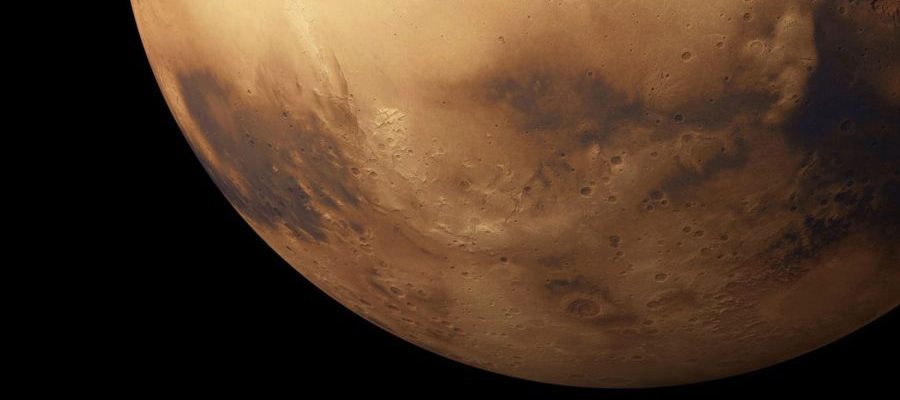
The human exploration of the Red Planet has been discussed in arduous detail since the publication of Wernher von Braun’s “The Mars Project” in 1953, with studies emerging from NASA and the Soviet/Russian space agency for decades, and more recently China and other emerging space powers. Yet the date for human exploration always seems just out of reach, perhaps a decade or more away. But it seems that we have arrived at a new dawn—with more sophisticated robotic explorers of many nations reaching mars every two years, and serious planning by entities such as SpaceX underway, a Martian Renaissance is at hand. Nobody knows more about upcoming Mars efforts than the speakers and panelists at the ISDC’s Mars sessions—join us for expert insights and the latest information on this greatest of human adventures.
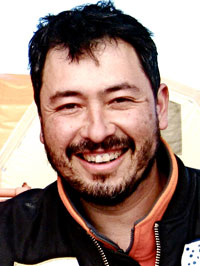
Pascal Lee
Planetary Scientist
Mars Institute, SETI Institute, & NASA Ames Research Center

Pascal Lee
Planetary Scientist
Mars Institute, SETI Institute, & NASA Ames Research Center
Dr Pascal Lee is a planetary scientist with Mars Institute, SETI Institute, and NASA Ames Research Center. He holds an ME in geology and geophysics from the University of Paris, and a PhD in astronomy and space sciences from Cornell where he was Carl Sagan’s last T.A.. Lee’s research focuses on water on Mars, Mars’ moons, ice caves on the Moon and Mars, and planning the future human exploration of Mars. He has led over 30 expeditions to the Arctic and Antarctica for planetary analog studies and is recipient of the United States Antarctic Service Medal. Lee is also an FAA-certified helicopter commercial pilot and flight instructor, and enjoys painting space art.
Speakers
Thorsten Eschweiler
Prospective Graduate Student in Geosciences and Space Studies
Mars University (MarsU), Mind Alive Inc.
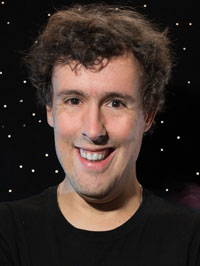

Thorsten Eschweiler
Prospective Graduate Student in Geosciences and Space Studies
Mars University (MarsU), Mind Alive Inc.
Thorsten is a prospective graduate student and analog astronaut with the goal of making life multiplanetary. He holds a Bachelor of Science in Geosciences and a “Certificate of International Competence” from the University of Bonn, Germany, and two graduate certificates in “Mars Settlement and Exploration” and “Mars Science and Engineering” from Mars University. He analyzes datasets of space and planetary science projects on the world´s largest and most popular platform for people-powered research (Zooniverse) with over half a million classifications. He penned two papers titled “Evolution of Martian Exploration” and “Evolution of Space Exploration” and has advanced scuba diving experiences.
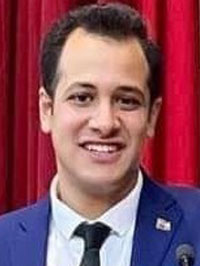
Peter Ghaly
Electrical communication and Electronics Engineering Student
October University for modern sciences and arts in Cairo Egypt (MSA University)

Peter Ghaly
Electrical communication and Electronics Engineering Student
October University for modern sciences and arts in Cairo Egypt (MSA University)
I am an electrical communication and electronics engineering student in the fourth level at MSA University in Egypt. I am always passionate about space exploration and towards living on Mars, so I became the head of content creators in a programme called “SPACEAK.” It’s an initiative made by the ministry of youth and sports in Egypt, and it’s under the supervision of the Egyptian Space Agency. My main role as a head is to spread the knowledge of space and space technologies among the Egyptian society. I am looking forward to participating as a speaker in the ISDC conference to gain more experience in this field.
David William Kim
Associate Professor
Australian National University/ Kookmin University, Seoul


David William Kim
Associate Professor
Australian National University/ Kookmin University, Seoul
David W. Kim (PhD: Syd) is Associate Professor of Asian History, the College of General Education, Kookmin University, South Korea and a Honorary Lecturer at the School of History, Australian National University (ANU), Canberra, Australia. He is a Fellow for the Royal Asiatic Society, UK and a Fellow for the Royal Historical Society, UK and the Editor for Book Series in East Asian Religions and Culture (Cambridge Scholars Publishing, UK). Kim has written nine books and over seventy-one articles including Sacred Sites and Sacred Stories Across Cultures (2021), Daesoon Jinrihoe in Modern Korea: The Emergence, Transformation, and Transmission of a New Religion (2020), New Religious Movements in Modern Asian History (2020), Colonial Transformation and Asian Religions in Modern History (2018), Religious Encounters in Transcultural Society: Collison, Alteration, and Transmission (2017), and Religious Transformation in Modern Asia: A Transnational Movement (2015).
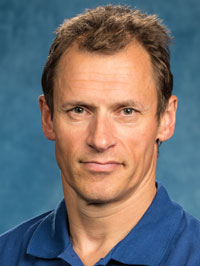
Erik Seedhouse
Associate Professor
Embry-Riddle Aeronautical University

Erik Seedhouse
Associate Professor
Embry-Riddle Aeronautical University
Dr. Erik Seedhouse is an associate professor at Embry-Riddle Aeronautical University where he teaches various subjects in spaceflight operations. He is also a research scientist specializing in the application of virtual reality in space life sciences and physiology. He obtained his PhD while working for the European Space Agency between 1996 and 1998. In 2009, he was one of the final candidates for selection as an astronaut in the CSA’s Astronaut Recruitment Campaign. Between 2008-13, Erik was the Director of Canada’s Manned Centrifuge and Hypobaric Chamber Operations. He also works as an occasional manned spaceflight consultant to Hollywood, as a triathlon coach, public speaker and author, with more than 30 books to his name. In an earlier life he was a professional ultradistance triathlete, winning three world championships and the world’s longest triathlon, the Decatriathlon, a ten times Ironman event. When he’s not teaching students, he can be found climbing mountains, having reached the summit of Elbrus, Aconcagua, Denali, Kilimanjaro and the South Summit of Everest.
Alex Simmonds
Lecturer in Law
University of Dundee, Scotland


Alex Simmonds
Lecturer in Law
University of Dundee, Scotland
Lecturer in Labour Law, Contract Law and Tort Law, published in Space Law

Camisha Simmons
Attorney
Simmons Legal PLLC

Camisha Simmons
Attorney
Simmons Legal PLLC
Camisha L. Simmons is an attorney that represents parties in business transactions, restructurings and litigation. She is a frequent writer and speaker on cutting edge legal topics that impact businesses.
Stephan Ziegler
Managing Chief Engineer
RWTH Aachen University – Digital Additive Production DAP


Stephan Ziegler
Managing Chief Engineer
RWTH Aachen University – Digital Additive Production DAP
Stephan Ziegler is managing chief engineer at the Digital Additive Production at RWTH Aachen University. In addition, he is director for systems engineering, process development and component design at the Aachen Center for Additive Manufacturing. He brings broad expertise in additive manufacturing, including materials, process chains, and approaches to digitization. He holds degrees in mechanical engineering, industrial engineering and business administration.
